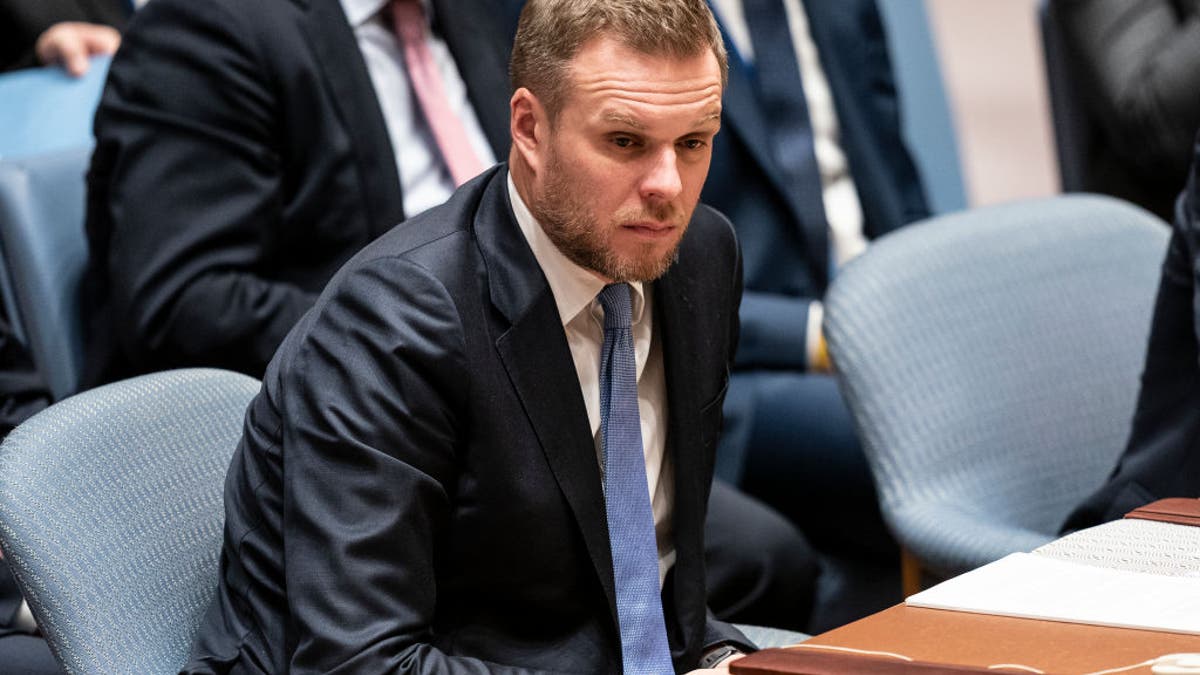Lithuanian FM discusses his country's outsized role in supporting Ukraine
Lithuanian Foreign Affairs Minister Gabrielius Landsbergis speaks with Fox News Digital on the sidelines of UNGA about the ongoing concerns with Russia's invasion and whether Europe has a leadership problem.
UNITED NATIONS, New York – UNITED NATIONS, N.Y. — Lithuanian Foreign Affairs Minister Gabrielius Landsbergis shared with Fox News Digital his perspective as someone on the border of the Ukraine invasion, including concerns Russia can do "so much damage" even as its power wanes.
"In 2014, before the first war in Ukraine, people in the U.S. and … Western leaders would say ‘Russia is going down, it’s on its way down, its regional power – it's not a global power anymore, its influence is waning,’" Landsbergis said. "But on its way down, it can do so much damage to its neighbors."
"It’s not the right assessment," he added, saying that even if Russia were declining as much as Western leaders think, the death "convulsions" of such a great power could "last for decades."
"Who knows when or how it would stop … it’s a very difficult thing to imagine, to predict," he said.
Lithuania has remained one of the most vocal nations in Eastern Europe throughout Russia’s aggression against Ukraine, even before the 2014 invasion of Crimea. Part of that has been to proudly embrace NATO’s role on the continent.

Lithuanian Foreign Affairs Minister Gabrielius Landsbergis attends NATO's 75th anniversary summit in Washington, D.C., on July 11, 2024. (Reuters/Yves Herman)
While Lithuania fell far below the 2% required expenditure on defense in 2014, by 2021 – a full year before the invasion of Ukraine started – Lithuania had met the requirement and only continued increasing its defense expenditure.
Lithuania in 2023 hit 3.2% expenditure, making it one of the highest-spending (by percent of GDP) members of NATO after only Poland, the U.S., Greece and Estonia.

Lithuanian Foreign Minister Gabrielus Landsbergis, right, and U.S. Secretary of State Antony Blinken hold a joint news conference in Vilnius, Lithuania, on March 7, 2022. (Olivier Douliery/Pool via Reuters)
Landsbergis used this – and the general increase in defense spending among NATO members over the past two years – to argue that European countries have proven their ability to "muster strength" and stand up to a power of Russia’s size.
HUNGARIAN FM RECALLS STRONG TRUMP ADMIN ‘EXPERIENCE,’ CLAIMS ‘OUR HOPE IS ALL’ ON FORMER PRESIDENT
"Even the biggest critics should have to admit that more than $100 billion, now … I mean, it’s huge. Nobody really could have predicted that Europe would be able to do that," Landsbergis said.

Gabrielius Landsbergis (Lev Radin/Pacific Press/LightRocket via Getty Images/File)
"The question is: Is that enough? And does that forbid such action against your neighbor like Ukraine to be repeated in the future?" he said. "This is where we see a problem that Europe needs to grow because every industry in Europe needs to step up with its spending towards defense."
When pressed on whether Europe lacks clear leadership or has stagnated in recent years, Landsbergis disagreed but acknowledged that the union has room to improve.
CLICK HERE TO GET THE FOX NEWS APP
"The union is structured with 27 members and each with a veto, right?" Landsbergis noted. "It's difficult to have a smooth process that doesn't require a lot of debate or consensus building."
"This is the way that we are currently at this juncture. There's talk about the need for reform," he added. "I think that it … will be happening. Europe has to adapt to the new requirements of this age and time, and maybe the principles change as well."








































